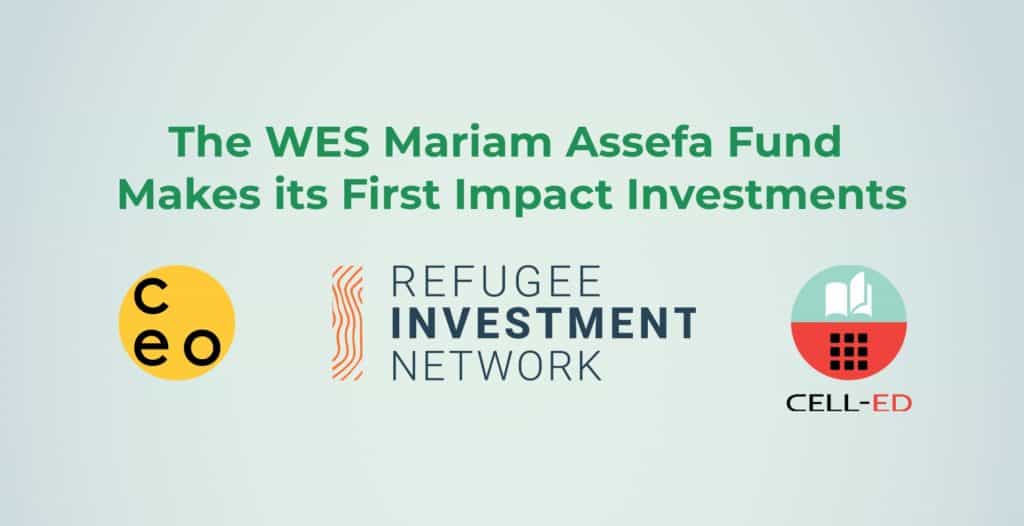Meet Rosemarie Powell, Executive Director of Toronto Community Benefits Network
Rosemarie Powell, who leads the Toronto Community Benefits Network (TCBN), has been at the forefront of pivotal community development and organizing throughout her 32 years in Canada.
Rosemarie first arrived in Montreal from Jamaica at age 16 with her siblings to reunite with her mother. Ever since, she has worked to provide immigrants, youth, and racialized communities greater access to employment opportunities. She followed in her mother’s footsteps as a community organizer.
“Although my experience in Canada as a Black woman immigrant has been characterized by struggle, systemic racism, and discrimination, my story is also one of resilience, self-empowerment, and community support,” Rosemarie says.

After reaching a ceiling in her career trajectory in Montreal, Rosemarie moved to Toronto in search of new leadership opportunities. She began working with the residents of Jane and Finch, a historically low-income and racialized community in Toronto, to advocate for green jobs and neighborhood revitalization.
Upon joining TCBN as executive director in 2016, Rosemarie was thrilled to continue working on labour issues, this time with a focus on the construction industry. She was grateful to witness the progression and impact of her earlier work when the Jane and Finch community was successful in their efforts to lobby the provincial government and Metrolinx for community benefits on the Finch West LRT Project.
TCBN, a grantee partner of the WES Mariam Assefa Fund, works to ensure that Toronto’s construction projects provide jobs to immigrants, refugees, women, and groups underrepresented in the sector. Most recently, under Rosemarie’s leadership, TCBN successfully advocated for the City of Toronto to adopt a new community benefits framework to ensure equitable hiring practices on all city construction projects. Under Rosemarie’s leadership, TCBN pushed the municipal government to increase diverse hiring to a 10 percent target as of February 2021.
“This was a historic win for the community, and community benefits should be enshrined in policy across all levels of government,” Rosemarie said. “Equity hiring means that people who are often left out of employment opportunities – in particular, Black and indigenous communities and especially women – must be given more opportunities to work in the industry.”
A community benefits agreement is a proven way to provide jobs and other benefits to all community members who are impacted by large development projects. Community benefits agreements are typically legally binding, contractual agreements between the developers, government, and community. TCBN is a community-labour network with a support base of workforce development groups, community partners, government and labour organizations. TCBN provides programs in training, education, and mentorship.
“We work to ensure that whenever new infrastructure is being built, the impacted community has a voice at the table and can contribute meaningfully in driving the project’s vision,” Rosemarie said.
Toronto is a vastly diverse city, with nearly 52 percent of its population identifying as visible minorities. Unfortunately, these numbers are unfortunately not represented in the trades sector. According to TCBN, women only represent 4.4 percent of workers in the construction trades, and Indigenous people represent just 1.9 percent. Rosemarie’s goal is to see the 10 percent equity target increase in the near future. Developers in Canada, who receive tax dollars to undertake major infrastructure projects, need a roadmap to follow in order to meet requirements when in contract with the city, she said.
“Canada is becoming a more and more diverse country, and everyone deserves to participate in the economy and prosper,” Rosemarie noted. “My goal is to see more underrepresented groups get a real chance at jobs and opportunities in the construction industry – an industry that has historically been built on the foundation of patriarchy.”
TCBN’s work around equity hiring is especially critical now because of job losses due to the pandemic. Construction workers with less experience, many of them from Black, Indigenous, and newcomer communities, were among the first to lose their jobs, Rosemarie said. In response, TCBN has scaled its NextGen mentoring program focused on workers in these communities, especially those in the process of preparing for work in the sector, or who were recently employed as apprentices or professionals. TCBN offered the program online, and provided a stipend to ensure digital access.
Now, in addition to its other work, TCBN just launched the inaugural Building Diversity Awards, which seeks to educate the construction industry about issues of equity and diversity and inclusion. TCBN is using global benchmarks for diversity and inclusion to ensure a universal approach. The awards will spotlight construction union partners and general contractors that are taking tangible steps towards addressing systemic issues of anti-black racism, racism, and gender inequality, and encourage others to do so. The event will take place on May 13, 2021, and you can RSVP here.
Throughout her career as a leader in Canada, Rosemarie has pushed for change that is inclusive of everyone. From her early years in Montreal helping her peers write résumés for summer jobs to now leading TCBN and spearheading large-scale community projects in Canada’s largest city, Rosemarie knows just how meaningful community participation is to develop an inclusive economy.
To learn more about Rosemarie’s work at TCBN, please sign up for their newsletter, or check out their website and Twitter.



